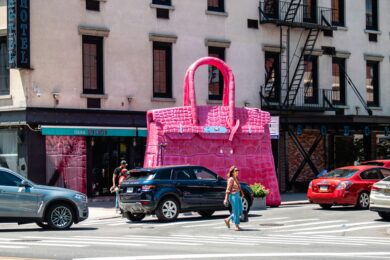London luxury home sales hurting over Brexit uncertainty
- The Brexit uncertainty is hurting the London luxury homes market
- Since the 2016 referendum, the demand for luxury homes in London has been dropping
- While some investors are shunning luxury property in London, international investors (especially from the US) have been cashing in on the Brexit uncertainty due to the reduced property prices.
Internal property consultant Knight Frank noted that the demand for luxury homes in London continues to shrink following a series of political events in 2019. On top of the issues affecting the property market is Brexit.
The Brexit uncertainty hovering over London’s real estate market is like mist that doesn’t seem to be clearing any time soon. Ever since the 2016 referendum, prime central London property prices have been on a downward trend, cumulatively dropping by about 14%, Savills reported. Sales, however, are said to be down 19%, according to research by LonRes.
While some markets such as the luxury homes have adversely been affected, the uncertainty has been a major boost to the super-prime lettings of £5,000+.
“People are watching and waiting for the political situation to play out and some have decided to rent,” said Tom Smith, head of super-prime lettings at Knight Frank. “People tell me they want to remain flexible, not just because of Brexit but because of their concerns around global trade tensions and the state of the world economy.”
Speaking to Financial Times, Smith noted that the demand has since increased in areas like Notting Hill and St John’s Wood. “Demand in both areas is driven by the quality of the schools and they have been particularly popular among US tenants. The weakening pound means overseas tenants have been able to increase their budgets.”
According to Smith, the emergence of high-quality super-prime developments has also helped drive tenants into areas like Mayfair.
The rising demand for rental properties has, however, tightened the supply with the number of new super-prime lettings hitting 209 by the second quarter of 2019 compared to 2018’s 284.
“The shortage of supply, particularly for the most in-demand new-build developments, means there can be a premium for the rental values paid,” Smith told FT. “There are several examples where this has pushed the rental yield to in excess of 4% in the best schemes, which is high by the standards of prime central London.”
But while others are facing tough times due to political unrest, a few property buyers have identified an opportunity for a bargain, particularly those purchasing properties in dollars.
An American buyer who anonymously spoke to Financial Times is said to have bought a flat for £6 million after receiving more than 10% discount. He said his decision was informed by the weak pound, overblown media stories about professionals shunning London, and favorable borrowing rates.
More industry news








